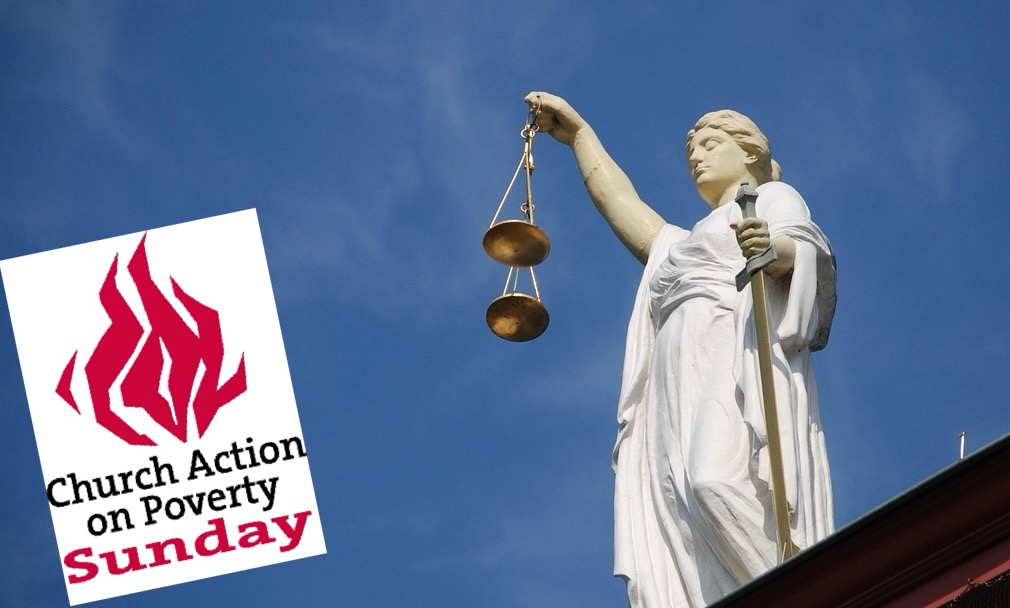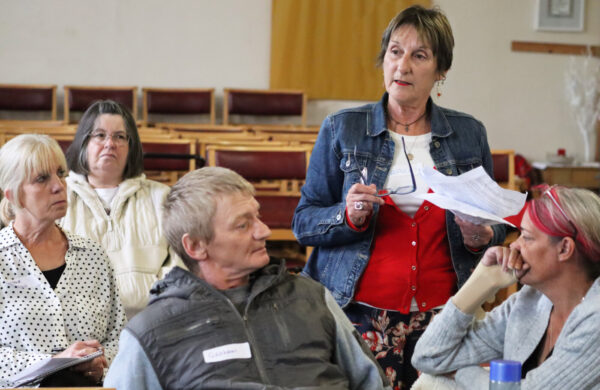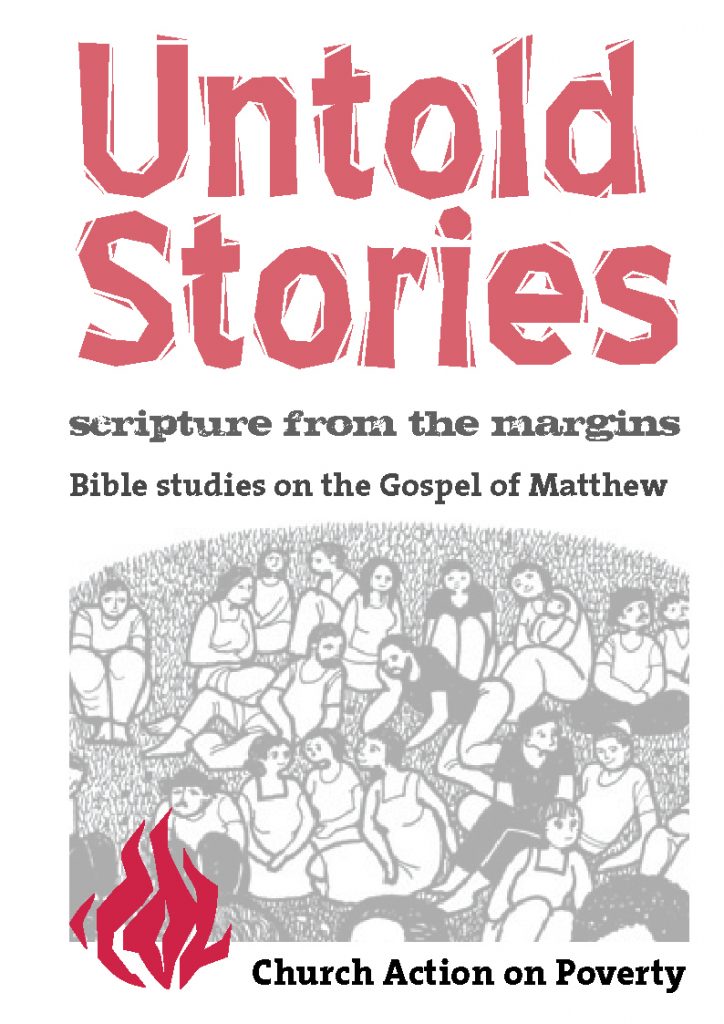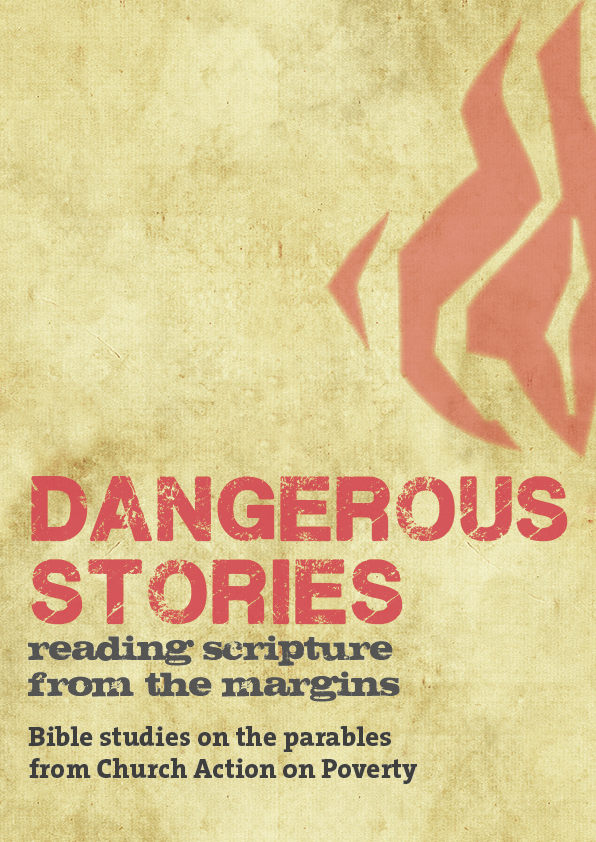On poverty and justice: A sermon and prayer for this week
In this guest sermon, John Davies from Liverpool reflects on the parable of the unjust judge and the persistent widow
Readings: 2 Timothy 3:14-4:5, Luke 18:1-8
“From childhood you have known the sacred writings,” wrote St Paul. Is that true for you? We all have our different stories when it comes to the background and the development of our faith.
I was brought up in a Baptist church, where the preaching and teaching of the Word of God was central to our Christian life. In that church each service begins with a short procession, when out of the vestry come the minister and elders, the first elder carrying a big leather-bound bible, and when that elder steps into the sanctuary, the congregation stand.
It is a powerful statement of how important the scriptures are to that community of Christians. It’s like when, in our communion service, we stand to hear the gospel reading: a sign of our respect for the Word.

Discovering God's devotion to justice
In my early years I valued the teaching I received from ministers and youth leaders who “unfolded the sacred writings” in ways which brought those words alive for me; people who challenged me to read and reread scripture to discover its hidden wealth; people whose teaching challenged me to apply what I’d heard to how I lived.
After all, there’s no point knowing about the scriptures if you ignore what they say. Paul wrote that “they instruct you for salvation through faith in Christ Jesus”. They instruct you for salvation: they show you how to walk in God’s saving way.
In my late teens and twenties I was especially challenged by teachers who opened up to me the image of a God who is alive and active in the affairs of the world and deeply devoted to justice and righteousness, justice focussed on the protection of society’s poorest and most vulnerable people; a God who demands that we live our lives in this way. As the letter of James puts it:

The unjust judge and the persistent widow
I think we can see that the woman in today’s parable clearly believed this. It would appear that she, a widow, thus one of the poorest and most vulnerable people in town, knew her scriptures, and believed what the laws of Moses said about protecting the likes of her from ruin. She was so convicted by this that she persisted in asking the judge for justice against her opponent.
Jesus didn’t say who her opponent was, or what type of justice she sought. He may have been her landlord who had evicted her with no explanation and without warning. Or he could have been her creditor who had increased the interest on her loan by a huge, unaffordable, amount.
Neither did Jesus say why the judge was so reluctant to grant the woman a hearing – only that “he had no respect for God or for others”, as he clearly showed by the way he treated this widow.
A lesson in speaking truth to power
We can speculate that the woman’s legal opponent was an influential person in the same social circle as the judge, let’s say an old school friend or his pal from the golf club, who he would be naturally inclined towards helping. The woman’s opponent may have even given the corrupt official some financial inducement to guarantee that he would not hear her case. [1]
Clearly if the judge read the scriptures at all, he read them in quite a different way than the widow, for the powerful are adept at manipulating God’s laws to benefit themselves. But she held fast to her principles, repeatedly challenging his resistance to her appeals until she was eventually heard.
This is a parable about speaking truth to power. Most of the power in the relationship rested with the judge, and with the woman’s legal opponent who the judge demonstrably favoured. But the woman had something arguably more powerful than he did – she had her truth, which she insisted on telling, her persistence eventually wearing out the judge’s indifference.

We can take confidence and courage from this story
I think the scriptures can give confidence to people today who want to challenge the powers that be, about the situations that are causing them harm. Today is Church Action on Poverty Sunday, an opportunity to reflect on the work of that organisation. Years back I helped to organise an event which we called the Liverpool Poverty Hearing which took place just days before the 1997 General Election.
On that occasion, held in a city centre Friends Meeting House, eight people with direct experience of living in real poverty in Liverpool were courageous enough to share their stories with an audience of the city’s decision-makers, business leaders, and parliamentary candidates. Their truthful, expert, voices were for once given a platform to be heard. The powerful ones were there to listen, and learn.
Karen from Norris Green spoke of the pain of having to face leaving Liverpool to gain meaningful work and move out of the poverty trap she was in.
Barbara from Everton suggested that poverty now was worse than in earlier generations because of an increase in social isolation.
Matt from Everton spoke of life on invalidity benefit – no cinema, no books, no means to make provision for his long term illness – and asked, “do I have to live in poverty all my life?”.
Jo, a graduate unable to find work, described life on £44 a week.
Dawn from Kirkdale, a mother of four, her partner on a wage just £1 above unemployment benefit, described the pain of being unable to provide properly for her young ones.
Ann, homeless through a series of events linked to her estranged husband’s violence against her, said that she’d be dead if she’d stayed with him and asked, “Why, because I chose to stay alive for the sake of my children, should I be forced to live a life in poverty?”
And Eric from Everton explained the ‘benefit trap’ that he and his wife were in because of her low income job. [2]
As a consequence of that meeting we formed Merseyside and Region Church Action on Poverty; and in the intervening years members have continued their campaigning, carried on organising events of these kinds.
Some of our grassroots people have been involved in parliamentary consultations and face-to-face meetings with ministers. And, in those rare and special times when the powerful truly stopped to listen, these consultations contributed towards some genuinely positive changes of policy.
So, today, we give thanks for Church Action on Poverty; people doing the same work today as the woman in Jesus’ parable, whose persistence overcame the resistance of the powerful ones.
A prayer for Church Action on Poverty Sunday

Footnotes
[1] William Herzog, Parables as Subversive Speech: Jesus as Pedagogue of the Oppressed; pp.215-232, ’Justice at the Gate?’
[2] John Davies, The truthful, expert voices. Notes from a Small Vicar, 17 October 2006. Church Action on Poverty: www.church-poverty.org.uk.
[3] Ana Gobledale, Prayers arising from Amos 7; quoted in Church Action on Poverty, Speaking Truth to Power resources [PDF], 23 February 2020.










